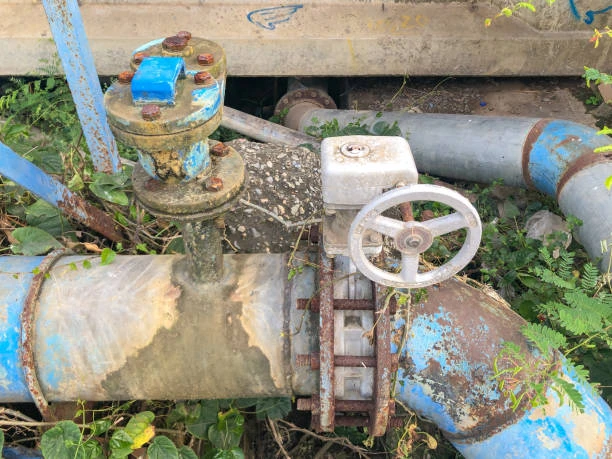In a landmark decision, the Kansas Supreme Court has effectively “closes valve” on a contentious legal battle involving an illegal hog-effluent pipeline. This decision marks the end of a long-standing conflict between local environmental advocates, agricultural businesses, and state regulators over the impact of industrial farming practices on the region’s natural resources.
The ruling not only reinforces environmental protection laws but also sets a precedent for future disputes involving agricultural waste management. Let’s delve into the key details of this case, the significance of the court’s decision, and the broader implications for environmental conservation.
Background of the Dispute
The Hog-Effluent Pipeline Issue
The dispute originated years ago when a large-scale hog farming operation installed an unauthorized pipeline to transport effluent (liquid waste) from its facilities to a nearby waterway. The company argued that the pipeline was necessary to manage waste efficiently, while opponents raised concerns about the environmental risks, including water contamination and harm to local ecosystems.
Environmental Concerns
- Water Pollution: Effluent contains high levels of nitrogen, phosphorus, and pathogens that can harm aquatic ecosystems.
- Soil Degradation: Overflow or leakage can contaminate soil, reducing its fertility and productivity.
- Health Risks: Communities near the affected waterway reported foul odors and potential health hazards due to exposure to untreated waste.
Legal Actions
Environmental advocacy groups and local residents filed lawsuits against the farm, alleging violations of state and federal environmental laws. The case ultimately reached the Kansas Supreme Court after years of legal wrangling in lower courts.

Kansas Supreme Court’s Decision
The Kansas Supreme Court’s ruling unequivocally deemed the hog-effluent pipeline illegal. The court ordered the immediate dismantling of the pipeline and imposed penalties on the farm for violating environmental regulations.
Key Points of the Ruling
- Non-Compliance with Permits: The pipeline was constructed without the required environmental permits, a clear breach of Kansas state law.
- Environmental Protection Prioritized: The court emphasized the importance of preserving water quality and protecting natural resources for future generations.
- Accountability Enforced: The ruling held the agricultural business accountable for its actions, sending a strong message to other industrial operators in the state.
Impact of the Court’s Decision
1. Environmental Benefits
By ordering the pipeline’s removal, the court has mitigated the risk of further water pollution. This decision also ensures stricter compliance with waste management practices in the agricultural sector.
2. Strengthened Legal Precedents
The ruling reinforces the role of courts in upholding environmental regulations and serves as a precedent for similar cases nationwide.
3. Empowerment of Local Communities
The court’s decision validates the concerns of local residents and environmental advocates, encouraging more communities to stand up against industrial practices that endanger their environment.
4. Implications for the Farming Industry
The verdict underscores the importance of compliance with environmental laws and may prompt other agricultural operations to adopt more sustainable waste management solutions.
Closes Valve: A Metaphor and a Reality
The phrase “closes valve” perfectly captures the dual significance of this case:
- Metaphorically: The court’s decision closes the legal loopholes that allowed the pipeline to operate unchecked.
- Literally: The physical removal of the pipeline prevents further discharge of hog effluent into the environment, effectively shutting off the flow of pollution.
Preventing Similar Disputes in the Future
To avoid such conflicts, stakeholders in agriculture and environmental management must collaborate on sustainable solutions:
1. Comprehensive Waste Management Plans
Farms should invest in advanced systems for treating and reusing waste, such as biogas production or composting, to minimize environmental impact.
2. Stringent Regulatory Oversight
State regulators must enforce stricter monitoring of agricultural operations, ensuring compliance with environmental standards.
3. Public Awareness Campaigns
Educating communities about the risks associated with improper waste management can foster greater accountability and advocacy.
4. Innovative Technology Adoption
Adopting cutting-edge technologies like sensor-based effluent monitoring and leak detection can help farms manage waste responsibly.
Conclusion
The Kansas Supreme Court’s ruling to close the valve on the illegal hog-effluent pipeline marks a significant victory for environmental conservation and the rule of law. By addressing this issue decisively, the court has not only protected Kansas’s water resources but also set a high standard for agricultural waste management nationwide.
As we move forward, it is crucial for industries, regulators, and communities to work together to ensure that economic development does not come at the expense of environmental sustainability.
FAQs
1. What was the primary issue with the hog-effluent pipeline in Kansas?
The pipeline was installed without proper permits, leading to environmental concerns such as water contamination, soil degradation, and health risks for nearby communities.
2. Why is the court’s decision significant?
The ruling enforces accountability, strengthens environmental laws, and sets a legal precedent for addressing similar disputes in the future.
3. How can farms manage waste more sustainably?
Farms can invest in technologies like biogas production, composting, and advanced effluent treatment systems to reduce environmental impact.
4. What does “closes valve” mean in this context?
It signifies both the literal shutdown of the illegal pipeline and the metaphorical closure of legal loopholes that allowed the violation to occur.
5. How can communities prevent similar issues in the future?
Communities can advocate for stricter regulatory enforcement, report violations promptly, and support sustainable agricultural practices through public awareness campaigns.
This landmark case underscores the importance of balancing industrial growth with environmental stewardship, ensuring a healthier and more sustainable future for all.